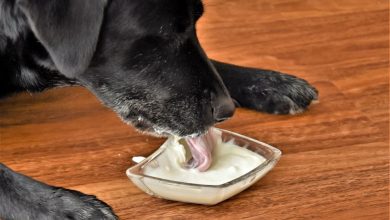Discover the Secret to Keeping Your Dog Away from Pesky Bugs!

1. Introduction
Dogs are curious creatures that love to explore and investigate their environment. Unfortunately, this can sometimes lead them to eating bugs. While some bugs are harmless, others can be dangerous and even poisonous to dogs. It is important to learn how to stop your dog from eating bugs in order to keep them safe and healthy. In this article, we will discuss the reasons why dogs eat bugs, how you can prevent it, and what steps you should take if your dog does eat a bug.
2. Understanding why Dogs Eat Bugs
There are several reasons why dogs might be tempted to eat bugs. The first is simply curiosity; dogs are naturally inquisitive animals who may be drawn to the strange shapes and colors of insects they come across while exploring their environment. Another reason could be that they enjoy the taste of certain types of bugs; some species have a sweet or salty flavor that can be appealing to a canine palate. Finally, some dogs may simply be looking for an additional source of nutrition; certain insects contain proteins, fats, and other nutrients that could supplement a dog’s diet.
3. Identifying the Types of Bugs Your Dog is Eating
It is important to identify the type of bug your dog is eating in order to determine whether it poses any health risks. Common types of bugs that dogs may eat include beetles, caterpillars, flies, grasshoppers, moths, spiders, worms and many more. Some of these insects may contain toxins or parasites that could make your dog sick if ingested in large quantities or over time. Therefore it is important to know what types of insects your pet is consuming in order to assess any potential risks associated with them.
4. Changing Your Dog’s Diet To Discourage Bug Eating
In order to discourage your pet from eating bugs it is important that they have access to a balanced diet containing all the essential nutrients they need for good health. This means providing them with high-quality food that contains enough protein, carbohydrates and fat as well as vitamins and minerals such as zinc and iron which are often found in insect bodies but not always present in commercially available pet foods. Additionally adding supplements such as omega-3 fatty acids or probiotics can help ensure your pet has all the necessary nutrients they need without having to resorting to bug consumption as an alternative source of nutrition
5 Making Your Home Unappealing To Bugs
In addition to changing your pet’s diet you should also take steps towards making your home less attractive for insect infestations by sealing off entry points such as cracks around windows or doors as well as ensuring there are no open sources of food or water left lying around which could attract pests into your home in the first place
6 Training Your Dog Not To Eat Bugs
Training can also help discourage bug-eating habits in pets by teaching them appropriate behaviors when confronted with an insect situation such as “leave it” or “drop it” commands so that when faced with an insect they will know not to touch or consume it instead turning away from it immediately
7 Using Deterrents To Keep Your Dog Away From Bugs
In addition there are various deterrent sprays available on the market which contain natural ingredients such as peppermint oil or citronella which have been proven effective at deterring both flying and crawling insects from entering areas where applied thus providing another layer of protection against bug infestations
8 Seeking Veterinary Advice On How To Stop Your Dog From Eating Bugs
>
Finally if you feel like you need additional advice on how best stop your dog from eating bugs then consulting with a veterinarian would be highly recommended They will be able provide tailored advice depending on the individual circumstances regarding both prevention methods as well potential treatments if required


